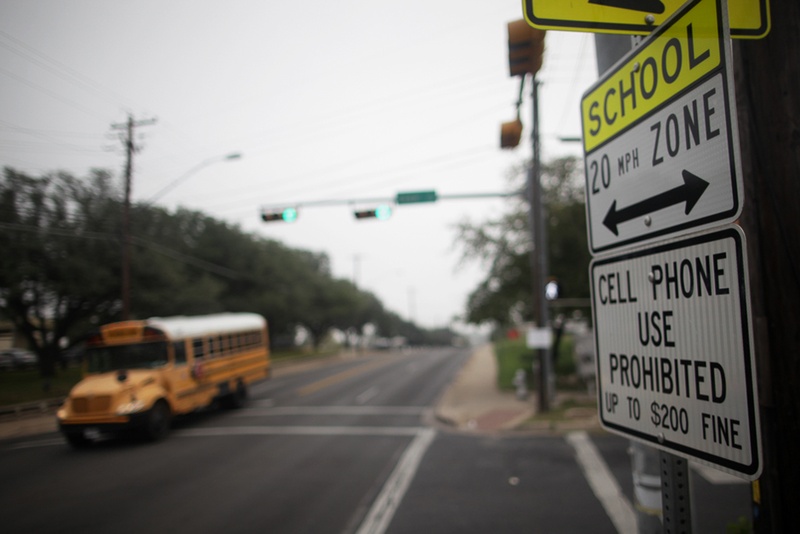New texting bill fails to pass Texas Senate
FRANCISCO VAZQUEZ
THE SIGNAL
The latest effort to pass a bill that would ban texting while driving in Texas did not make it into legislation.
On Nov. 12 of last year, member of the Texas House of Representatives for District 82, Tom Craddick, R-Midland, introduced House Bill 63 that, if passed, would have made texting while driving a punishable offense in the state of Texas. Although passed through the House of Representatives, the bill was killed in the Senate.
House Bill 63, also known as the Alex Brown Memorial Act, was written partially in honor of a Lubbock-area high school senior who died in a single-vehicle accident. Alex Brown was texting while driving down a narrow back road on her way to school when she lost control of her Chevy Silverado. She was thrown from her truck and crushed by it.
Jeanne and John Brown started the Remember Alex Brown Foundation in 2010 to help spread awareness of the dangers associated with texting while driving. In 2011, the Browns went to the Texas Legislature to push for a statewide texting while driving ban. The push was vetoed by Governor Rick Perry.
“I support measures that make our roads safer for everyone, but this bill is a government effort to micromanage the behavior of adults,” Perry said in a statement released shortly after the veto.
The following year Craddick picked up the cause with the introduction of H.B. 63. Craddick’s texting while driving bill would have made it a traffic violation for any Texas driver to use “a handheld wireless communication device to read, write or send a text-based communication while operating a motor vehicle unless the vehicle is stopped.”
Craddick said that putting a statewide ban in place would be a tool for law enforcement officers to keep Texas roads safe.
“The goal here is to reduce crashes, injuries and fatalities,” Craddick said. “As lawmakers we have a responsibility to attend to the safety on our state’s roads.”
Consequences for this violation included a $100 fine for a first-time offense. Any offense after that would have been $200 and the possibility of license suspension.
Laws restricting texting while driving already exist statewide for minors, bus operators transporting children and in school zones. Twenty-five Texas cities also have texting-while-driving bans. The intent of H.B. 63 was to make the ban statewide for all Texas drivers.
Deputy Marc Davis of the Pearland Police Department said statistics gathered by research groups across the country show just how dangerous texting while driving can be.
“Based upon the texting while driving accident statistics, I don’t see why a bill like this hasn’t already made it all the way into law,” Davis said.
Davis has worked with the Pearland Police Department for 19 years and attests to the extent of danger texting while driving causes, comparing a driver who is texting while driving to a blind person.
“Twenty-five percent of all accidents can be attributed to texting while driving,” Davis said. “You have to ask yourself: would you rather have a blind person drive you home or a drunk person drive you home? There is no doubt that if a texting while driving bill does go into effect our roads and the roads across Texas will be much safer for everyone.”
Davis said although this is the second time the texting bill did not make it, he definitely feels it will be written into law by 2015.
“Perhaps if more associations, such as Mothers Against Drunk Driving, stood up for this cause, we would be able to pass this type of bill,” Davis said.
MADD has been asked many times to help in the struggle, but has repeatedly refused any discussion on this issue.
Jeanne and John Brown of the Remember Alex Brown Foundation call for all people to unite for this cause and keep the conversation going. Believing in the power of knowledge, they encourage everyone to take the pledge to not text and drive.
“This generation needs to realize just how much power they have to change the course of history,” Brown said in a video posted on the Remember Alex Brown Foundation website.
Craddick said he plans to introduce a similar texting-while-driving bill in the next Texas Legislature session.
“Legislation to ban texting while driving statewide is a function of safety and saving people’s lives,” Craddick said. “If this law saves one life, it is worth it.”

